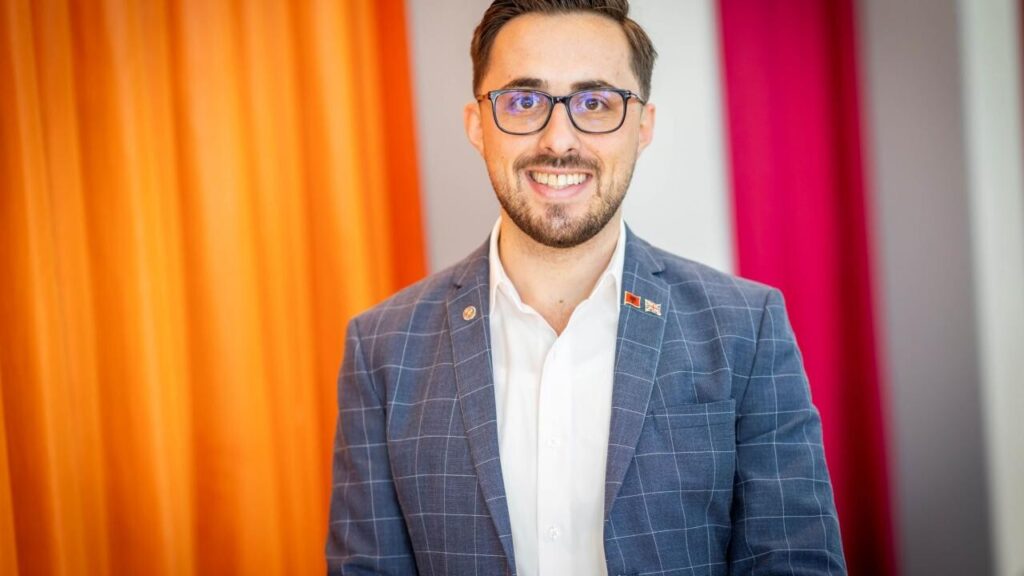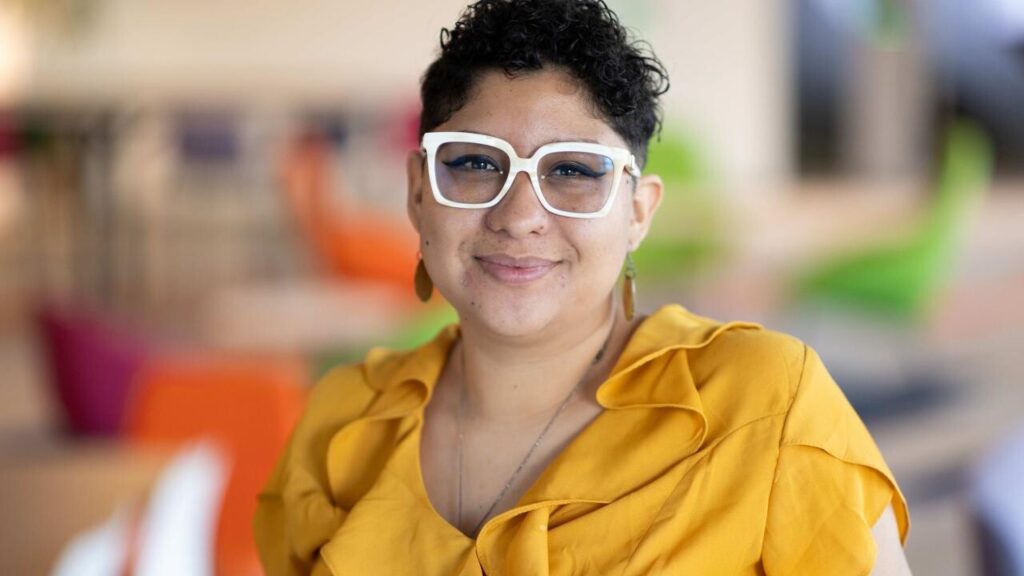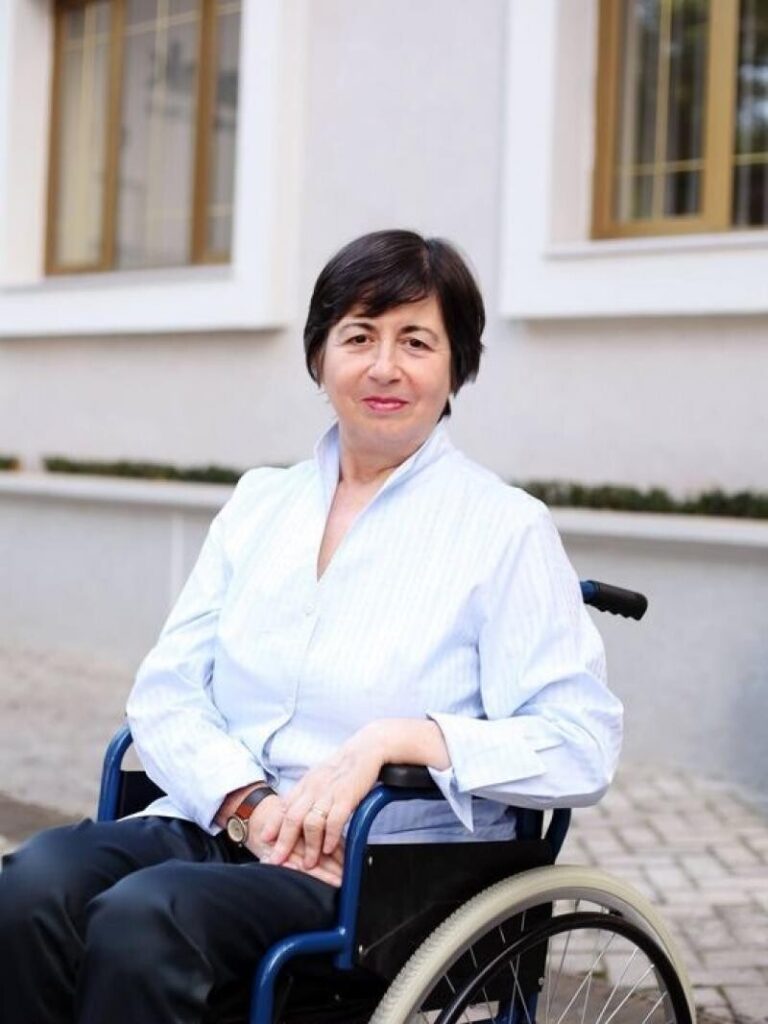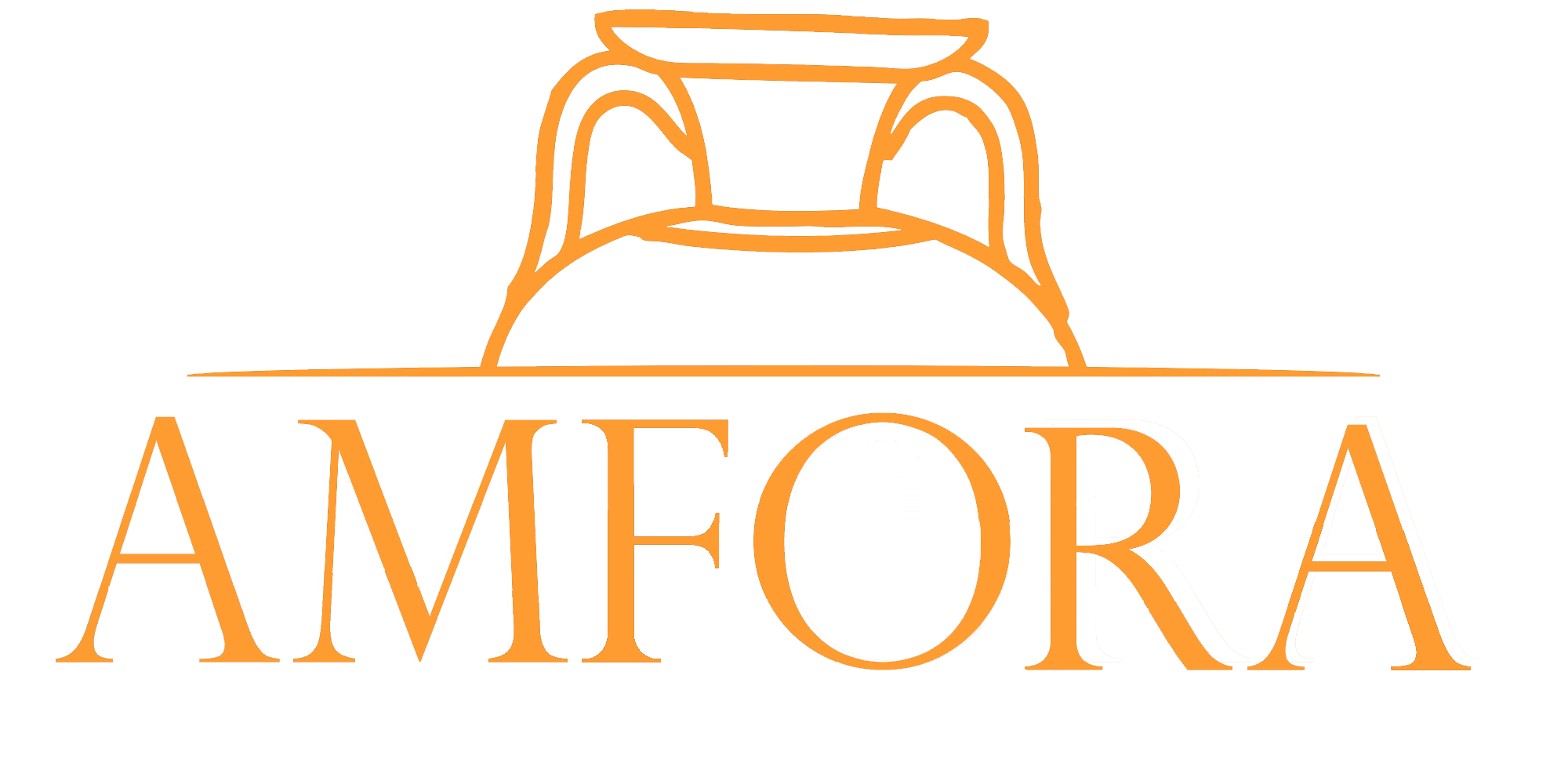Accessibility sometimes means everything
The British Council’s 90 Youth Voices programme brought together young leaders from around the world, who each had a cause they felt passionate about. Participant Geri Emiri from Albania looks at disability rights in his country and talks to his fellow participant Jacqueline Cruz-Aguila from Mexico about her experiences of a world that is still slow to open real equality to people with disabilities.
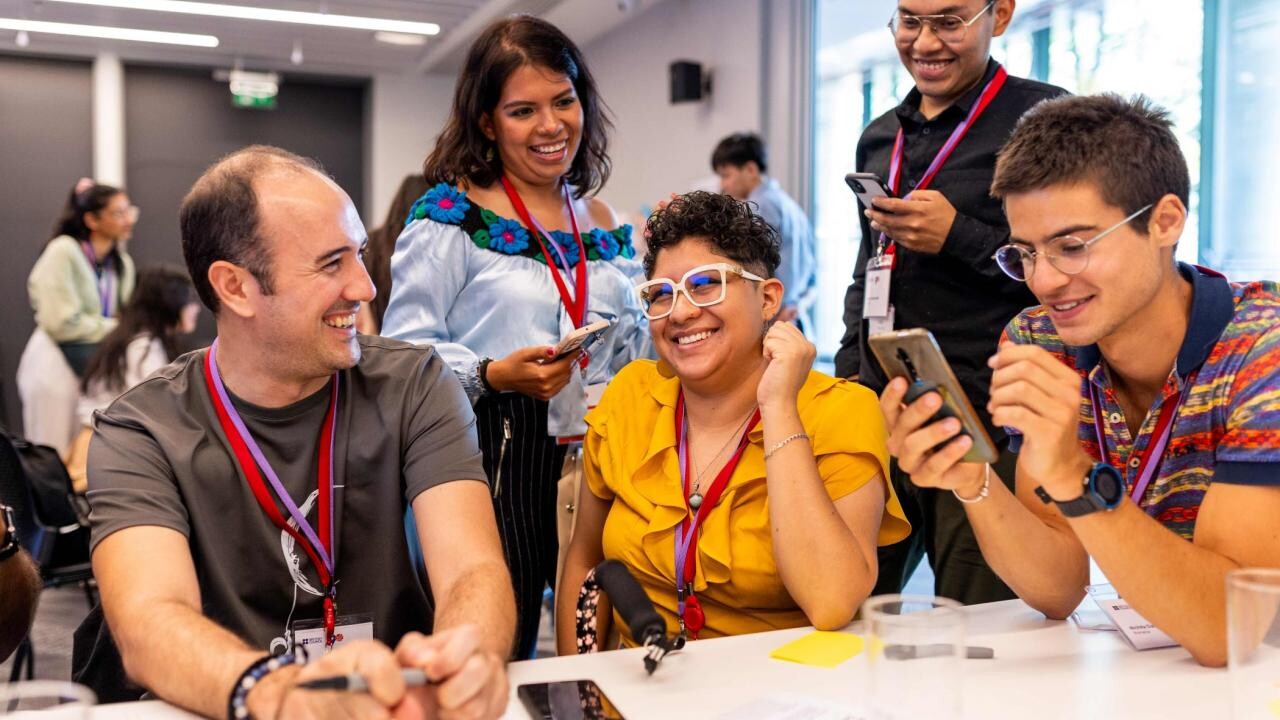
"I'm not shy about sharing my disability and my own experience. Soon I discovered that conversation flowed naturally" - Jacqueline Cruz-Aguila (centre). © British Council
After 14 hours of travel over the Atlantic Ocean, the plane departing from Mexico City touched down in London, UK. As soon as she stepped off the plane, Jacqueline Cruz-Aguila was captivated by one detail, so much so that she barely noticed the temperature difference between the two capitals.
“Stepping off the plane, a small detail caught my attention: an accessibility service desk. Not just that, it was marked with the new global accessibility symbol”, Jacqueline remembered with a laugh.
Calling it the new logo is a misnomer; it was introduced in 2015 – nearly a decade ago. – It replaced the traditional wheelchair symbol with a design showing a person with open arms, disrupting the portrayal of disability.
“I thought, the Disability Rights Movement achieved it. It is not common to find this logo outside the movement or institutional spaces in the global south,” she remembered.
The logo is more than a design; it serves as a reminder of accessibility in services, information, communication technology, and physical access.
“This was the first moment I felt moved by the differences between my experiences in Mexico as a disabled, autistic woman and the conditions I encountered in the UK.”
At the airport, she appreciated both the facilities and the kindness of the assistance services. When she arrived at her accommodation, she found that reasonable adjustments had been made to ensure her stay was comfortable.
“Although some NGOs and institutions in Mexico try to provide facilities for people with disabilities, urban design and architecture often create barriers,” Jacqueline explained.
Public infrastructure, access to buildings, education, and media coverage are challenges that unite people with disabilities across continents. Not far from London, a situation similar to Mexico’s can be found in Albania, located in Southeastern Europe’s Balkan Peninsula.
“It is essential for responsible institutions to ensure access to construction, communication, and services for people with disabilities. It is also vital to provide support services that enable full inclusion and independent living,” said Bardhylka Kospiri, an activist for People with Disabilities.
As part of that group, she is well aware of the situation in Albania and the broader Balkan region.
“At the same time, it is necessary to empower people with disabilities and their families by supporting them with the necessary services to overcome barriers,” Mrs. Kospiri explained.
Challenges of a Disability Context
In Latin America and the Caribbean, in 2021 the population of people with disabilities was estimated at 85 million, representing 14.7% of the region’s population. In Mexico, they comprise 16.5% of the population and face significant barriers to accessing dignified conditions.
Only 4% reach higher education, 21% are illiterate, and just 26% are part of the economically active population. This number reflects the deep-rooted poverty and structural inequality, which affect vulnerable groups in an intersectional way. People with disabilities often include the elderly, economically disadvantaged, racial and ethnic minorities, and LGBTQI+ communities.
In Albania, the statistics are similarly challenging, “The available data show that persons with disabilities represent 6.5% of the population in Albania (2024), 5.4% in Kosovo (2022) and 10% in North Macedonia (2022),” says Mrs Kospiri.
In this context, adopting an intersectional approach to advocating for disability rights is essential. A critical social perspective is needed to understand disability beyond the medical focus. The challenges faced by people with disabilities are not isolated; they are interconnected with broader social issues.
“The goal is always the full social inclusion of persons with disabilities. For this, it is necessary to raise the awareness in society, including within institutions, to treat persons with disabilities equally, offering equal opportunities and eliminating barriers”, Mrs Kospiri observed.
Barriers affecting people with disabilities are present in almost every aspect of daily life, yet disability often remains invisible in critical discussions. It is vital to integrate disability perspectives into conversations about poverty, sexual and reproductive rights, climate change, education, and sustainable development.
By addressing disability holistically in these spaces, we can promote genuine inclusivity and move beyond historically patronising approaches that marginalise this community.
“Due to the unsatisfactory implementation of legislation, persons with disabilities still face many barriers that hinder their social integration”, Mrs Kospiri explained referring to Albania and the surrounding region.
Disability and Leadership
Persons with disabilities face numerous challenges, ranging from insufficient support infrastructure and inadequate representation in education systems to limited visibility in the media, which often does not even include sign language broadcasting.
Three countries in the Western Balkans, Albania, Kosovo and North Macedonia, have joined forces to form an alliance aimed at advancing disability-inclusive reforms.
Following a comprehensive analysis of national legislation related to the UN Convention on the Rights of Persons with Disabilities (CRPD), in particular Article 9 (Accessibility) and Article 29 (Political and Public Participation), these nations identified shared concerns.
“Despite ongoing reforms, reliable and up-to-date data on persons with disabilities in the Western Balkans remains scarce,” explained Mrs Kospiri.
Jacqueline Cruz-Aguila reflected on her journey in the British Council’s 90 Youth Voices Programme, held this July in the UK, which gathered promising young leaders from across the globe.
“Initially, I felt nervous about whether I could contribute meaningfully to the event due to my marked divergent social skills,” shared Jacqueline, “However, I was able to enjoy the fulfilment of social participation.
“While I consider myself privileged; an autistic speaker, postgraduate, fluent in a second language, with professional experience — travelling abroad and engaging in an international network to discuss global challenges remain daunting,” she said.
For young leaders, the path can often be tough, navigating in an adult-centric world, and for disabled youth, additional barriers are present when dealing with societal stigmas, discrimination, and barrier accessibility.
“I’m not shy about sharing my disability and my own experience. Soon I discovered that conversation flowed naturally, and while we were sharing our experiences, challenges, and hopes, a recurring theme was the lack of accessibility in our countries, the stereotypes about disability, and the weakness of public policies as a hindrance to achieving equality,” said Jacqueline.
“The 90 Youth Voices put together different leaderships and causes. Beyond being an opportunity to invite young change-makers to introduce the disability perspective in their initiatives and work, it was a space to re-learn about how we can bring accessibility into our daily lives.
“However, my ‘aha moment’ was seeing other young leaders with disabilities in a space that was not solely for people with disabilities. This was because the topic of inclusion is not just about creating environments tailored for a specific community, but about engaging those communities in all the spaces of their interests and involving them in spaces where disability is not the main focus. Real inclusion means recognising people with disabilities as active citizens rather than as subjects of care and involving them in decision making.”
Despite the challenges, countries are making progress towards respecting the rights of persons with disabilities. In Albania, the ratification of the UN Convention on the Rights of Persons with Disabilities in 2013 marked the first document addressing disability issues that guided the approach towards respecting human rights.
“In recent years, Albania has made continuous efforts to build a society that respects fundamental human rights and freedoms and prohibits discrimination, with particular focus on respecting all the rights of persons with disabilities,” explained Mrs Kospiri, who was the deputy minister of health in Albania a few years ago.
A call to action
The concept of disability has evolved over time, driven by the demand from people with disabilities to recognize their human rights. The Disability Rights Movement reframes who they are, forming a community that questions and challenges welfare positions, both from the governments and social sectors, which continue to adopt a charitable perspective towards them.
“Disability is part of our identity, not something to be erased, but not all we are”- Jacqueline Cruz-Aguila.
Governments that have ratified conventions and have adopted various laws for persons with disabilities, must work harder to implement them and create appropriate conditions for this social group.
“These legal and sub-legal acts affect persons with disabilities in all spheres of life, including sectors such as education, health, social protection, justice, employment and training, culture and other fields,” said Mrs. Kospiri emphasising the interaction that must be created.
“Using terms like People With Disabilities and Disabled people does not make a difference in assuring accessibility or guaranteeing the full exercise of rights, but some prefer person-first language. For me, using the term disabled is a way to advocate that disability is not something negative and is inherent to our identity,” Jacqueline explained.
Some governments, despite adopting national measures, still fail to meet their obligations for legislative, administrative and other reforms to protect the rights of persons with disabilities.
“Given that persons with disabilities in the Western Balkan countries, as well as at European and international levels, constitute a significant percentage of the population, it is necessary to intervene in the National Accessibility Standards,” said Mrs. Kospiri.
“The 90 Youth Voices reaffirmed that accessibility is not just possible – it’s essential to guarantee the full social participation of people with disabilities,” Jacqueline explained.
“We must integrate disability perspectives into all discussions – education, the environment, work rights, health – because the first step to accessibility is to see disability, even when it is not visible. A positive attitude doesn’t erase disabilities – in fact, it increases ableism,” she concluded.
To advance inclusion, we need to recognise the barriers, acknowledge the necessary accommodations, and show respect.
